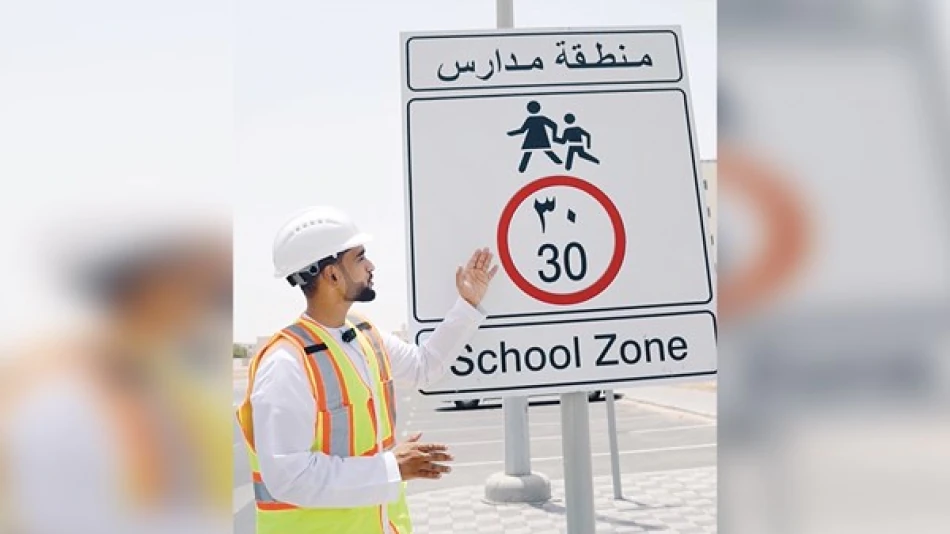
Abu Dhabi Transforms School Surroundings with Street Upgrades for Enhanced Student Experience
Abu Dhabi Municipality Launches Major School Zone Safety Upgrade Program
Abu Dhabi Municipality has completed an extensive infrastructure improvement project targeting roads and surrounding areas near schools across the emirate's capital city. The initiative reflects the UAE's broader commitment to urban safety standards and positions Abu Dhabi as a model for child-centered urban planning in the region.
Comprehensive Infrastructure Overhaul
The municipality executed wide-ranging developmental and improvement works spanning both Abu Dhabi island and outlying areas within its jurisdiction. The project encompasses multiple critical safety and accessibility upgrades designed to address the unique challenges of school zone traffic management.
Key improvements include road and parking lot asphalt maintenance, pedestrian walkway tile replacement, erosion damage repairs on school access routes, and the installation of additional parking spaces for parents and visitors. The municipality also restored directional signage, road markings, and curbstone infrastructure throughout targeted zones.
Strategic Approach to Zone Selection
Data-Driven Priority Setting
The municipality's approach demonstrates sophisticated urban planning methodology. Target areas were selected based on traffic volume analysis, congestion patterns around schools, and existing traffic safety conditions. This evidence-based selection process ensures resources are allocated where they can deliver maximum safety impact.
Alignment with UAE's Vision 2071
The project aligns with the UAE's long-term strategic vision to become the world's best country by 2071, particularly in education and infrastructure sectors. Abu Dhabi's proactive approach to school zone safety creates a benchmark that other emirates and regional capitals are likely to follow.
Regional Context and Global Standards
This initiative places Abu Dhabi alongside global cities like Singapore and Copenhagen that have pioneered child-safe urban design. Unlike reactive approaches common in many developing cities, Abu Dhabi's comprehensive planning addresses infrastructure needs before they become critical safety issues.
The project also reflects the UAE's broader infrastructure investment strategy, which has allocated billions toward smart city initiatives and sustainable urban development across the federation's seven emirates.
Community Safety Integration
Driver Responsibility Campaign
Beyond infrastructure improvements, the municipality launched a public awareness campaign urging drivers to exercise caution in school zones, adhere to speed limits, and respect traffic markings and signage. This dual approach—combining infrastructure upgrades with behavioral change initiatives—follows best practices from countries with exemplary road safety records.
Parental Engagement Strategy
The municipality specifically called on parents to educate children about safe crossing zones and proper street-crossing procedures. This community-based approach recognizes that infrastructure alone cannot guarantee safety without corresponding behavioral changes from all road users.
Economic and Development Implications
The school zone improvement program represents more than safety infrastructure—it signals Abu Dhabi's commitment to family-friendly urban development that could influence residential property values and business location decisions. Areas with enhanced school zone safety typically see increased demand from families, potentially driving real estate appreciation and commercial development.
For the broader UAE construction and infrastructure sector, this project establishes new standards for municipal development contracts and could influence similar initiatives across the region's rapidly growing urban centers.
Most Viewed News

 Layla Al Mansoori
Layla Al Mansoori






